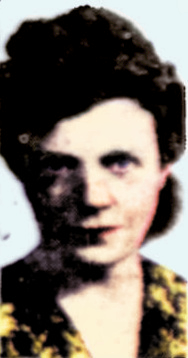The Pittsburgh Press (August 27, 1941)

I DARE SAY —
…
The parallel
…
By Florence Fisher Parry
Much has been made of the President’s recent parallel between himself and Lincoln and their respective difficulties in time of national peril. I dare say it is inevitable for parallels to be drawn, but I cannot help wishing that this happy task could be reserved for the historians rather than embraced by the living objects of the similarities. It would seem to be in well better taste. I find myself wincing just a little every time reference is made by the Hyde Park dynasty to the President’s self-erected monument there. For the fact remains that it is the first time that any President of the United States has anticipated history by providing it a personal receptacle.
Of course, the simple monument at Hyde Park would not be compared, for instance, with the monument the Caesars, Napoleon, Lenin and Hitler have erected to commemorate their accomplishments. But modest as it is, the Hyde Park Library is a gesture, however faint, in the direction of history. And I think it can be taken as an indication of something or other in the President’s character. It might be said (timidly of course) that he has his eye on the ages.
Now this attribute has never cropped up before in any of our Presidents. George Washington and Thomas Jefferson must have realized in some way that they were rustling a page of history. Lincoln was too imbued with the mysterious forces of prophecy not to know that he was directing forces that would make the earth tremble for a century. Woodrow Wilson must have felt the portent of the ages, at Versailles.
Yet none of these men reached out a beckoning hand to lure the historians, prematurely, to his door. They let the future carve its own niches in the Hall of Fame, apportioning the size of each, and who their occupants were to be.
I like their methods best.
The difference
But now that the parallel between Lincoln and himself was suggested by our President, it might be well to look more deeply into the source of Mr. Roosevelt’s quotation: Lincoln, The War Years by Carl Sandburg.
I do not need to set down here the full passage quoted by our President; and beginning:
I have no word of encouragement to give… the fact is the people have not yet made up their minds that we are at war.
But it is significant, I think, that when Lincoln spoke these words, the War between the States was in its second declared year. The bloody Battle of Antietam had been fought, and 12,000 men in gray, 12,000 in blue, lay dead in heaps upon the sleepy cow-pasture of that battle alone… The first and second battles of Bull Run had run their terrible course. Chaos in high quarters was driving the President to the last outpost of despair. It had been a full year since Lincoln, in the face of coming storm, had reshaped his cabinet and given a strong foe, Stanton, the place of the weak Cameron, with “wide and free play.” Corruption was plaguing the White House, and the scythe of the President’s wrath was slashing out on all sides. The Union Army had already seared its way into 100,000 square miles of enemy territory. The volunteer system had broken down. The draft was being exercised over a dangerous reluctance to fight. Lincoln, against heartbreaking odds, was trying to save the Union. There was, to him, no other issue. The Union. The Union. To save this Republic.
The Union
He had written to Horace Greeley:
I would save the Union. I would save it the shortest way under the Constitution. The sooner the national authority can be restored; the nearer the Union will be “the Union as it was.” If there be those who would not save the Union, unless they could at the same time save slavery, I do not agree with them. If there be those who would not save the Union unless they could at the same time destroy slavery, I do not agree with them. My paramount object in this struggle is to save the Union, and is not either to save or to destroy slavery. If I could save the Union without freeing any slave I would do it, and if I could save it by freeing all the slaves I would do it; and if I could save it by freeing some and leaving others alone I would also do that. What I do about slavery, and the colored race, I do because I believe it helps to save the Union; and what I forbear, I forbear because I do not believe it would help to save the Union. I shall do less whenever I shall believe what I am doing hurts the cause, and I shall do more whenever I shall believe doing more will help the cause. I shall try to correct errors when shown to be errors; and I shall adopt new views so fast as they shall appear to be true views.
I have here stated my purpose according to my view of official duty; and I intend no modification of my oft-expressed personal wish that all men everywhere could be free.
Yours,
A. LINCOLN
That was the Lincoln, torn and troubled, humble and prayerful, deliberately surrounding himself with a hostile BUT STRONG Cabinet, eager to invest power, thankful for advice, when he said to his visitors:
I have no words of encouragement to give. The fact is the people have not made up their minds that we are at war…
And to meet that war? And for that hideous responsibility? Whom had the President chosen to assist him? Consider his Cabinet: Four old-line Democrats (Chase, Cameron, Welles, Blain), three old-line Whigs (Seward, Bates, Smith). In all top places Lincoln had put his rivals for Presidential nomination.